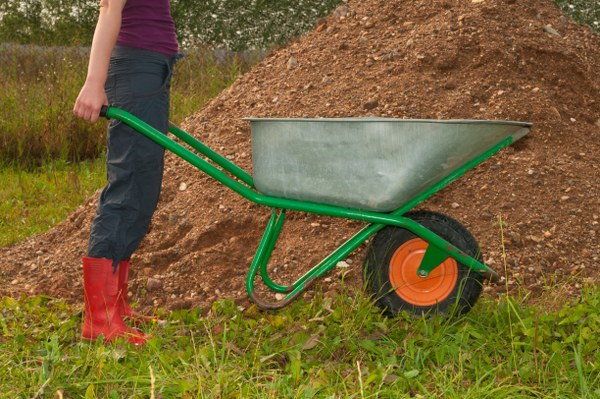What You Need To Know About Composting And Soil In Watford
Posted on 28/05/2015
Everything You Need to Know About Composting And Soil In Watford

How do you add compost to the soil?
What most gardening professionals in Watford do is that they collect the fallen leaves, grind them or put them through a chipper and add them to the compost pile. Alternatively, you can also put the shredded leaves on the plant beds and let the organic matter break down naturally and feed the soil gradually. Although compost is essentially organic in content, some gardeners like to mix minerals such as granite dust in it. These minerals are important. The carbon dioxide secreted by the roots mix with the soil water to create carbonic acid, which helps to break down the minerals into dust, a form that plant roots can easily utilize. Mineral rich compost rounds off the soil better and creates a healthy and balanced soil system that encourages plant growth.

When do you add the compost?
The best time to add compost to your garden in Watford, WD1 is right before planting each season’s crops. After you have removed the last season’s plants and the beds are exposed, dump a layer of compost, at least 6 inches thick or so, before planting and mix it in with the soil. Mixing them will also help loosen the soil particles and allow aeration between them. The trapped air and water aid in further decomposition and allow the roots of saplings to absorb nutrients better. Fast growing plants will use up the nutrients faster so you might have to add more compost occasionally during the growing season as well. You can also mix a bit of synthetic fertilizers as well, especially those rich in nitrogen. But as far as possible, try to recycle the plant debris produced in your garden. This will save you a lot of money, time and effort that you would put in gardening and will give you a natural way to replenish your garden.

How do you understand the quality of soil of in your garden?
Gardening experts are always advocating that you do soil tests before you begin a planting season in your garden in the WD2 region. It is a very good way to understand two things – what to add to your soil and what not to add to it. This is because a balanced soil system is an absolute necessity for good growth and you need to know what is already present so that you don’t add them in excess. Most people believe that more is better, and go ahead and add NPK fertilizers without having done a soil test to know the contents native to the soil. However, that is not true when it comes to synthetic fertilizers. Too much of chemical fertilizers will affect your plants adversely and deteriorate the quality of your soil, so you must be very careful about adding them to your garden in Watford. A soil test will also tell you if your soil pH is in the optimum range – 6.5 to 7 – to make use of the nutrients efficiently. An out of range pH will make the nutrients unavailable to the plants, not matter how much you add to the soil.

Winter is a good time to do a soil test. Pick a few samples from the ground before it freezes over and send them over to the soil laboratory to be tested. The laboratories in WD1 have a smaller workload at this time of the year compared to the beginning of growing season and will be able to do the tests properly and give you results in time for you to take action accordingly.












